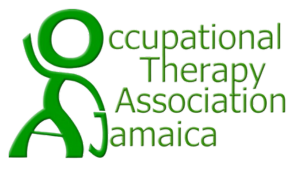In 1955, The Senior Medical Officer at Bellevue Psychiatric Hospital in Kingston, took a bold step that would lay the foundation for the profession in Jamaica. Having recognised the transformative potential of Occupational Therapy in psychiatric rehabilitation, he was instrumental in securing two scholarships for Psychiatric Nurses to receive specialized training in England.
When they returned, as trained Occupational Therapists, in 1958, they brought more than just expertise—they brought hope. Armed with newfound skills, they established Jamaica’s first Occupational Therapy Department, sparking a movement that would encourage others to champion and grow the field for years to follow.
In the early 1960s, the profession gained new momentum. Another cohort of Jamaicans was granted training opportunities, and upon their return, they expanded the reach of Occupational Therapy to the Sir John Golding Rehabilitation Centre and Bellevue Hospital. By the early 1970s, the field had grown to include eight dedicated practitioners working across diverse areas such as psychiatry, physical disabilities, gerontology, and special education for children with unique needs.
However, progress stagnated for the next fourteen years as no additional Jamaicans were sent for training and migration drained the country of many of its therapists. Consequently, leaving the fledgling profession in a severe shortage of therapists. The remaining practitioners and the volunteers from the British Volunteer Services Overseas (BVSO) faced an uphill battle, striving to maintain services and address the growing demands for rehabilitation across the island. They filled the gap, offering their skills to serve the Jamaican people and further solidify the foundation of Occupational Therapy in the country.
Despite these setbacks, resilience became the hallmark of Jamaican Occupational Therapists. The late 1980s marked a turning point as practitioners began returning to the island or choosing Jamaica as their professional home. Slowly but surely, their presence brought new
energy to the profession.
Today, the Occupational Therapy Association of Jamaica (OTAJ) stands as a testament to the persistence and dedication of these trailblazers and their successors. Yet, the journey is far from over. With a growing population, Jamaica remains underserved, and the demand for qualified therapists continues to outnumber supply.
Even so, there is cause for optimism. Public awareness of Occupational Therapy’s vast benefits in rehabilitation is increasing, paving the way for more practitioners to join the field. The OTAJ envisions a future where every Jamaican can access the care they need and deserve.
